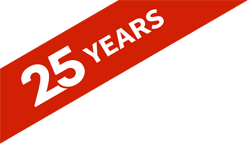These days, there are many reasons that manufacturers may need to print their product instructions (user guides, manuals, MSDSs, etc.) in many different languages. They may be operating in one country with several different official or commonly-spoken languages, such as Switzerland or the United States, or they may be attempting to expand into other markets abroad. Regardless of the reason, selection of a high-quality technical translation service with expertise in the specific field involved is imperative. A poor translation could cause user error with consequences ranging from minor to extreme in nature, damaging the company’s reputation and bottom line. On the other hand, a good technical translation can drive product sales and improve the perception of the manufacturer and its goods in the target market.
The challenge when translating technical documents is to ensure that the company’s product instructions are conscientiously rendered in the target language(s) in a manner that is clear and helpful to local end users and vendors when they are trying to make use of a product. The best way to achieve this is to make sure to hire a professional document translation service that employs subject matter experts (SMEs) in the appropriate field as both translators and reviewers. A reliable, well-reviewed translation agency with a history of using SMEs who provide commendable technical translations can make sure that the final technical translation is accurate and straightforward, and can even sometimes provide the manufacturer with feedback on any potential problems with the source documents.
Documentation Written by Engineers
It has become common manufacturer practice to have product engineers write user manuals and other literature for the products they have been involved in creating. The rationale behind this is that the engineers, who are already intimately familiar with the products in question, can save the company time and money by eliminating the need to hire technical writers. Unfortunately, this can backfire, as engineers may end up providing documentation that is challenging for non-engineers (such as vendors and end users) to comprehend, let alone implement. While engineers are brilliant in their area of expertise, that expertise does not always extend to writing about it. Text written by engineers may be found to contain grammatical or usage errors – or, simply, correct but complex or obscure jargon – that can complicate understanding of the document’s intention. Moreover, engineers who have worked with a product for a long time may leave out descriptions of a product’s steps for usage or features, believing them to be as obvious to everyone as they are to the engineering department. This omission of key elements can cause user frustration, which could require the manufacturer to find ways to recover its reputation, rendering the abovementioned time and money savings moot.
Subject Matter Experts: The Key to a Solid Technical Translation
A qualified translation company will have access to SMEs in a wide variety of technical fields, all of whom are capable of understanding even complex, engineer-authored technical information on a given product and transforming it into an unambiguous and consistent document in the target language. An SME has the education and experience to refine a technical text for the end user, leaving out irrelevant or inconsistent information and, if necessary, working with the original product engineers or document creators to supplement any incomplete information with further clarifications. In effect, an SME might have to create two separate translations: one that converts the terminology and phrasing of a highly technical or confusing document to language an everyday user could understand, and a second that actually translates the source language to the target language.
Translation of Text Embedded in Technical Art
Technical art (diagrams, charts, illustrations, etc.) is notorious in the translation industry for containing embedded text. Specialized formats, such as those used by photography apps, computer-aided design (CAD) software, and so on, may be present and require special attention from the translation team to ensure the professional look of the document and the accurate labeling of product parts. The desktop publishing (DTP) arm of an esteemed translation agency will have solutions for formatting the translations of these files in a way that retains the meaning and look of the original materials in the end translation.
Improved User Experience
One of the most important components of a good, lasting manufacturer–customer relationship is ease of product use. The positive word of mouth, repeat business, and online reviews generated by satisfied customers contribute to the company’s standing in the business community, in addition to injecting life into product sales.
Today’s highly literate and internet-savvy international market has access to a wide variety of product options. Manufacturers who go the extra mile by employing high-quality technical translation services in the generation of multilingual product literature that creates a satisfying user experience are making a long-term investment in creating a positive distinction between themselves and the competition.

















